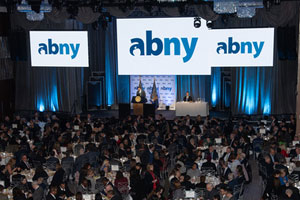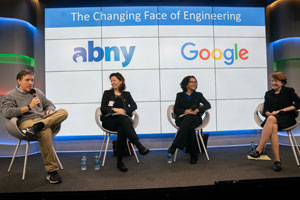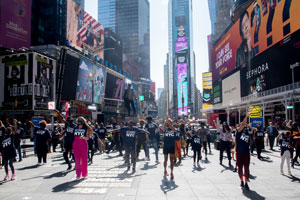November: Public and Private Foundations
We are honoring ABNY YPs improving New York through their work at public and private Foundations.
Congratulations to our November Spotlights of the Month, Chimene Okere and Nupur Chaudhury!
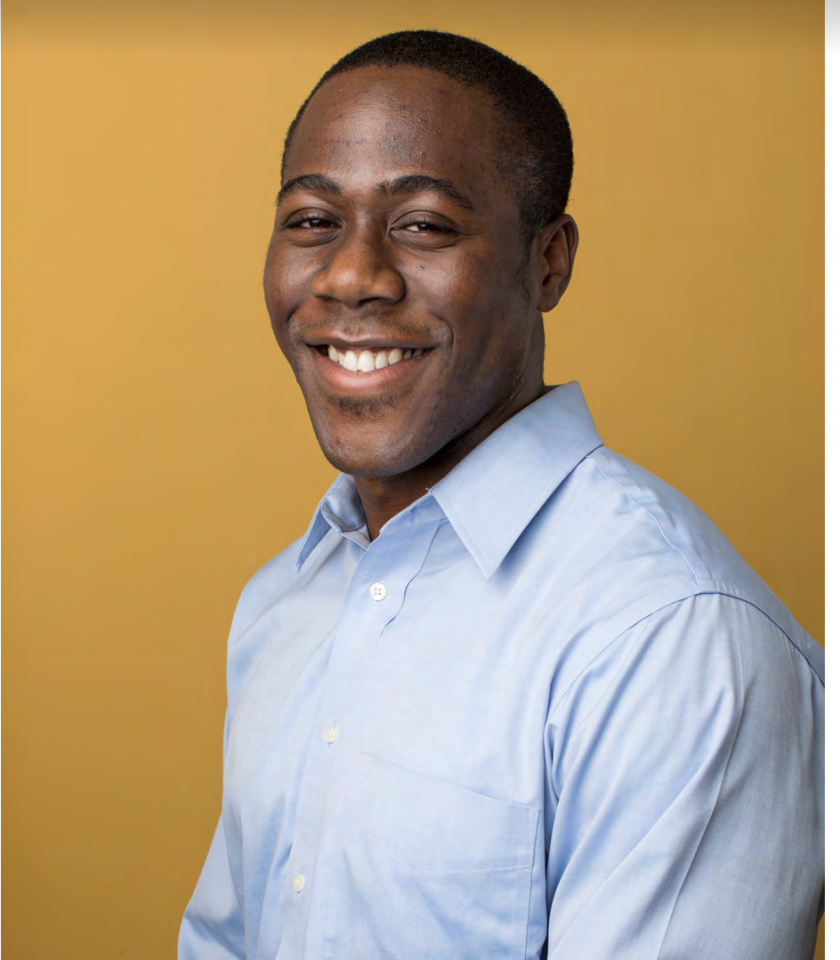
Chimene Okere
I arrived here via a combination of luck, hard work, and mentorship. Growing up in Chicago I felt like my life trajectory was locked-in and set. I focused on building a strong set of familiar relationships while ignoring too many folks who were different than myself. That led to me missing a lot of chances to learn from diverse communities across the country’s third largest city. Leaving Chicago helped me recognize how much I can learn from other parts of our country and supercharged my curiosity. Eventually I translated my passion for learning about new communities to serving on student leadership groups at the University of Memphis. There, mentors on the University team knew of my interest in public service and passed my resume to recruiters at the White House who were looking for recent grads to fill entry level positions across the Obama Administration. After working in the federal government for two years, one of my close mentors knew of a few positions at the Ford Foundation that were opening up and connected me with the person who would become my boss. After learning about the role and realizing how it aligned with my passion for public service, I pursued the role and was hired.
My perspective. The fight towards justice is long, but the urgency of today’s moment demands that we are creative and intentional about how we want leaders to show up in public and private. I’m most proud that despite where I go in my career, I believe that I can contribute to a more just America and New York regardless of my title, salary, or age. And yet, I know that it’s my responsibility to support the conditions so that next generations have the possibility to feel the same. Besides that, I’m also extra proud to be alive to see my often annoying, endlessly endearing siblings transition from kids to adults to parents. It instills so much hope in my community and generation.
Invest in people, not just ideas. At the start of my career in public service, I valued my intellect far more than my social skills and ability to relate to people who were different than I am. Today, I am rarely, if ever, the smartest or hardest working person in a meeting. However, I still believe that I am able to contribute to the collective benefit of my team and organization because I can relate to people and communicate my position clearly. Smarts are needed, but people in philanthropy or public service do not need to be an intellectual, the most eloquent, or the most passionate to contribute. After every job I’ve left, I’ve regretted not spending more time with the people with whom I work. My advice for people who want to work in my field is to use your career to understand and learn more about people as those relationships can pay off in ways that you can’t predict.
I still don’t believe I’m a New Yorker; but this city animates my compassion for others and curiosity for a better, more just world unlike any other place. As long as that energy ignites my interests, New York will always be a home and a source of calm and hope.
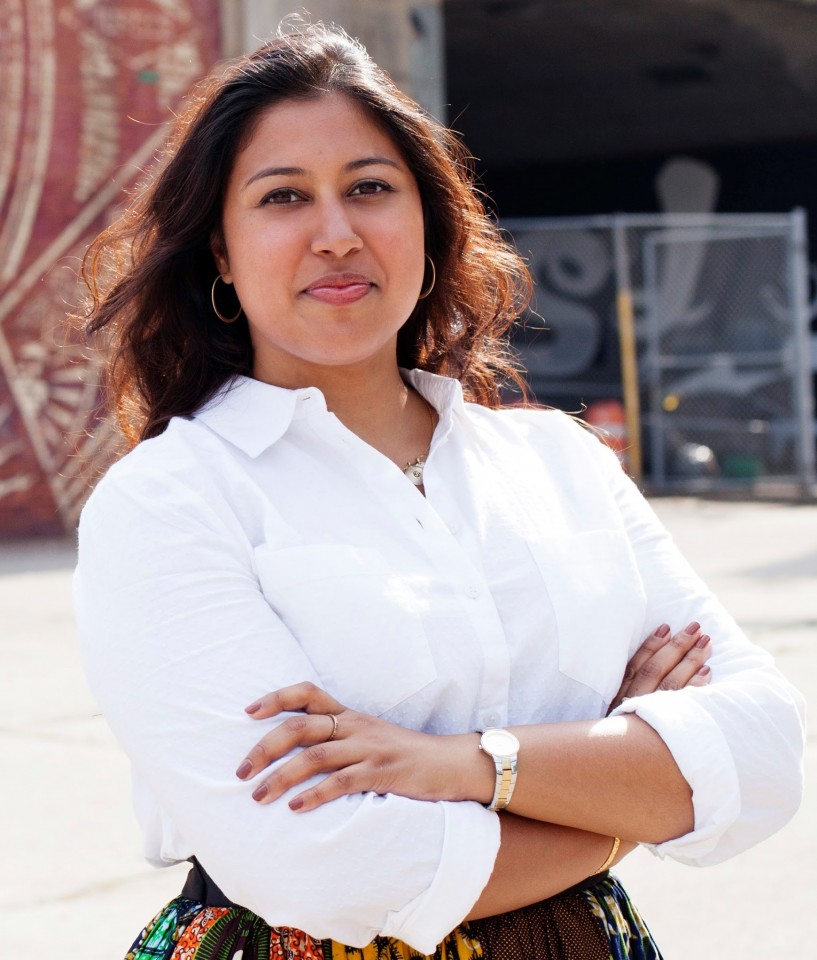
Nupur Chaudhury
I grew up traveling between US American cities and Indian cities and was always fascinated with the differences. Urban Planning gave me the language to do that. I stumbled into public health when I was working in India and realized that health wasn’t really defined health care, but by everything else: transportation, education, employment, to name a few. Going to graduate school for Urban Planning and Public Health gave me the foundation to understand how cities and neighborhoods influence health, but it was my habit of saying “yes” to every opportunity presented to me, and taking thousands of people I came across out for coffee, tea, you name it! It was through that that I’ve been able to work at some amazing places: the United Nations, the Manhattan Borough President’s Office, Department of City Planning, and the Clinton Foundation, NYC’s Center for Health Equity, and now, in Philanthropy.
I am most proud of what I am not: I am a South Asian, but I am not a doctor, lawyer or engineer. Being a kid of South Asian immigrants and from a family of doctors, there was a lot of pressure to follow that path. But I believe that South Asians have an important point of view in this country, and this country needs us working in different fields. That’s why I focused on building healthy cities. I am proud of being the difference, and taking a stand for South Asians in this country forging our own path, one of curiosity, exploration, and solidarity in the work toward a just city for all.
I am also proud of the fact that my work in building a just city for all spans fields. I’ve worked in the non profit sector, I’ve worked for the City for New York. I’ve worked with private designers, international development organizations, and now philanthropy. We need everyone to work together, and I’m proud to be a bridge builder in and between these fields.
If you want to work in Philanthropy, build an expertise, a passion, and a point of view. That comes from doing the work, not just funding the work! I’ve worked in offices without working printers, where I brought my own office supplies to work. I’ve worked 12 hour days, 7 days a week, deep in and with communities. That helped me understand what the real issues are in building healthy neighborhoods and cities. And I bring that to my role as a Program Officer every single day when designing grants and working with grantees. An effective Program Officers aren’t those who are skilled at making grants. An effective Program Officer are those who have done the work and can bring those voices to the boardroom and the foundation at large. Without that understanding, it’s impossible to be effective at grantmaking.
When I started positioning myself on the subway platform based on the stop I was getting off at. Logging the subway cars based on the exits of your destination takes skill. Only a true New Yorker can do that!

